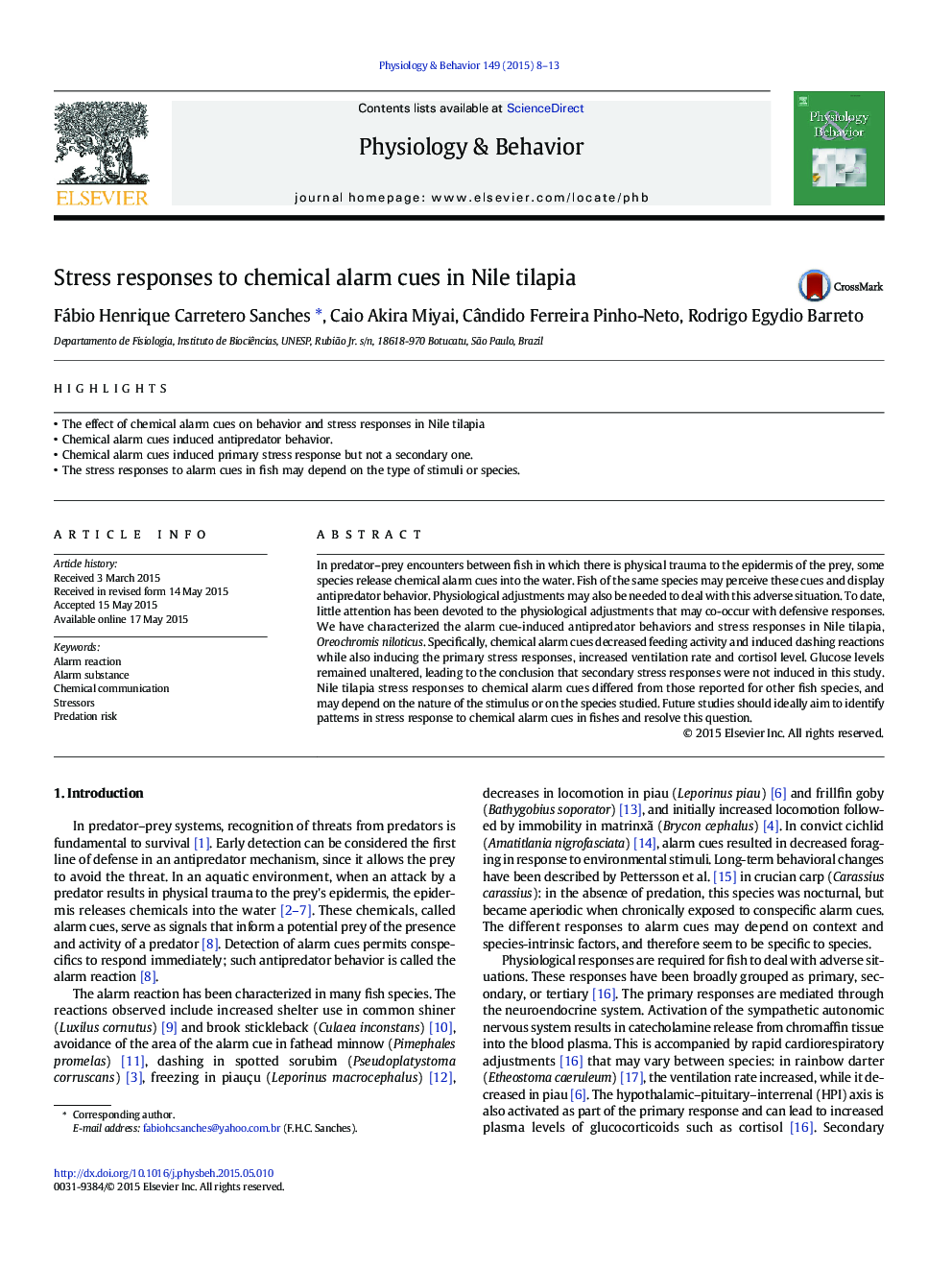| Article ID | Journal | Published Year | Pages | File Type |
|---|---|---|---|---|
| 5923533 | Physiology & Behavior | 2015 | 6 Pages |
â¢The effect of chemical alarm cues on behavior and stress responses in Nile tilapiaâ¢Chemical alarm cues induced antipredator behavior.â¢Chemical alarm cues induced primary stress response but not a secondary one.â¢The stress responses to alarm cues in fish may depend on the type of stimuli or species.
In predator-prey encounters between fish in which there is physical trauma to the epidermis of the prey, some species release chemical alarm cues into the water. Fish of the same species may perceive these cues and display antipredator behavior. Physiological adjustments may also be needed to deal with this adverse situation. To date, little attention has been devoted to the physiological adjustments that may co-occur with defensive responses. We have characterized the alarm cue-induced antipredator behaviors and stress responses in Nile tilapia, Oreochromis niloticus. Specifically, chemical alarm cues decreased feeding activity and induced dashing reactions while also inducing the primary stress responses, increased ventilation rate and cortisol level. Glucose levels remained unaltered, leading to the conclusion that secondary stress responses were not induced in this study. Nile tilapia stress responses to chemical alarm cues differed from those reported for other fish species, and may depend on the nature of the stimulus or on the species studied. Future studies should ideally aim to identify patterns in stress response to chemical alarm cues in fishes and resolve this question.
